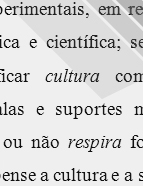

................................
In his youth, close to integrist and integralist doctrines (Escândalo da Verdade [Scandal of the Truth], 1943; O problema da Europa [The problem of Europe], 1945; Humanismo social [Social humanism]1949), Silva Dias systematically collected sources compiled in Portugal e a Cultura Europeia. Séculos XVI a XVIII [Portugal and European Culture. 16th to 18th Centuries] (1952), vast material which already announced one of his reference works, Correntes do sentimento religioso em Portugal. Séculos XVI a XVII [Currents of Religious Sentiment in Portugal. 16th to 17th Centuries] (2 books., 1960), whose absence of the second volume does not diminish the epochal and global vision structured around the "attitudes and thoughts and the vital expressions of religious sensitivity, in view of the problems of the experience and conception of Christianity in its relations with the realisation of man's destiny in the Cosmos" and "its spiritual projections in a given cycle of culture" (ibid., X). From here, the disambiguating function of A Política Cultural da Época de D. João III [Cultural Policy in the Time of King John III] (1969), Os Descobrimentos e a Problemática cultural do século XVI [The Discoveries and the Cultural Questions of the 16th Century] (1973), and O Erasmismo e a Inquisição em Portugal [Erasmianism and the Inquisition in Portugal] (1975) became polarised in the semantic corollary sacralisation/desacralisation (see Pombalismo e Projeto Político [Pombalism and Political Project], 1984, or Os Primórdios da Maçonaria Portuguesa [The Beginnings of Portuguese Freemasonry], 1980, in collaboration with Graça Silva Dias), which guided a line of research with a strong presence in Coimbra (cf. O Sagrado e o Profano [The Sacred and the Profane], RHI, 1986 and 87) and Lisbon (in the history of political ideas, J. Esteves Pereira, Z. Osório de Castro, increasingly attracted to the history of ideas from a feminine perspective). In this historiographical disambiguation effort, Fernando Catroga, who from the 1970s onwards would become a major representative, would focus on Death-Memory-Desacralisation as the core of his cultural history.
